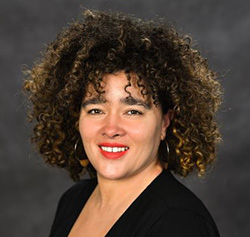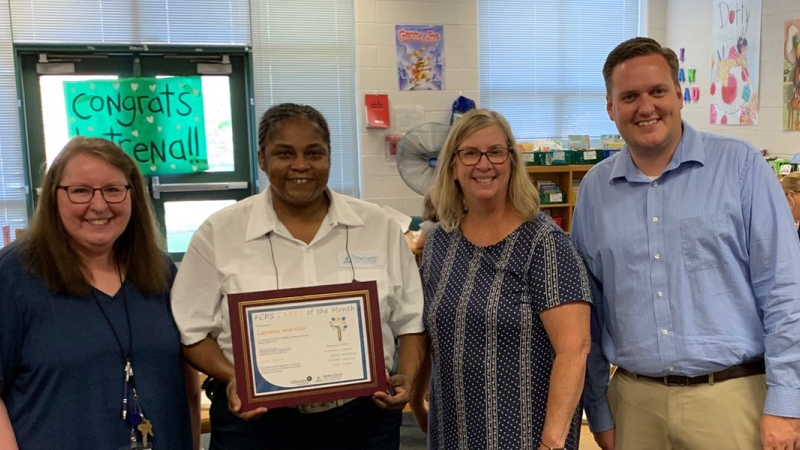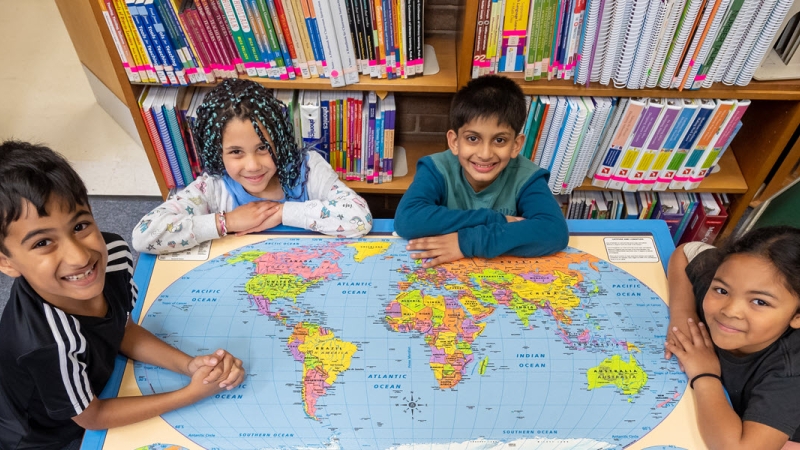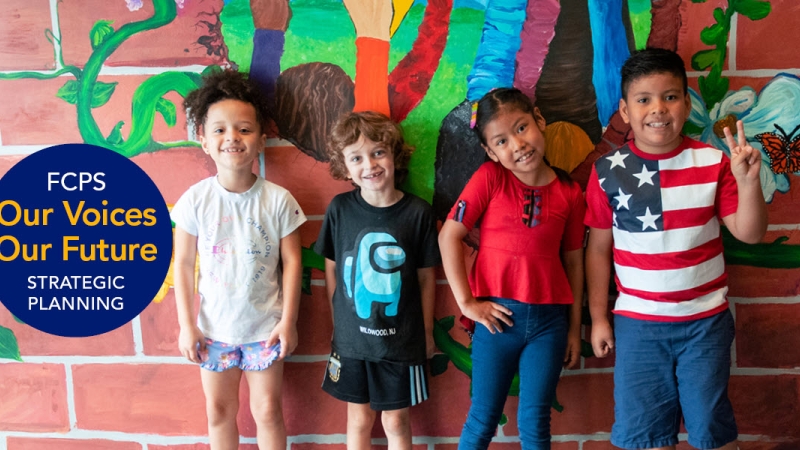
Spotlight on Equity in Education: Meet Shannon Merriweather
Shannon Merriweather is one of five equity specialists in FCPS; she serves the schools and staff members in Region 3. She is also a member of the team working to gather input to develop an anti-racist and anti-bias curriculum for the school division.
As an equity specialist, what is your primary goal?
My primary, professional goal is to consistently deliver work that drives our division toward truly being a more equitable, responsive, and affirming educational space for all the families we serve. In working toward that goal, I strive on a daily basis to show up in the many spaces that I inhabit and ask the right questions and push the right buttons to ensure that as a division, group, or site we are a little bit better every day for every one of our students going forward.
serve. In working toward that goal, I strive on a daily basis to show up in the many spaces that I inhabit and ask the right questions and push the right buttons to ensure that as a division, group, or site we are a little bit better every day for every one of our students going forward.
Do you work with one specific school, in a pyramid, or a region? Or do you have a broader reach?
I directly serve all of the schools in Region 3, in addition to supporting the Department of Special Services, and the Hearings Office. In Region 3 I work with schools and, pyramids and support the Region vision. In schools, I partner with administrators, equity leads, and equity teams to support their work in developing and implementing equitable systems and practices to serve each school community. Additionally, I support the Region leadership team in curating and enacting the work of equity for the whole Region. In addition, as part of a team that serves the entirety of FCPS, I go where I am asked. I have had opportunities to partner with several departments within Central Office, school personnel outside of Region 3, and engage in professional development with both our instructional and operational staff.
How has the COVID-19 pandemic impacted your work?
Logistically the COVID -19 pandemic has greatly impacted my (and my team’s) ability to most effectively engage in our work. When the content of your work is truly relational, a digital platform can impede relationship building and conversations—as many of our teachers have seen. Conversely, this platform has also allowed us to be in more spaces than we would have been able to be in normally, so I am available to engage in more conversations than I ever would have.
From a deeper standpoint, the pandemic has very much highlighted many of the inequities that have historically existed in our school system and allowed us to shine a light and discuss these issues more acutely than we ever have. The pandemic has explicitly shown us the ways in which inequity is present within our school system. Issues of historic racism and inequity are being confronted in more open forums and with greater honesty than we have ever seen. We have begun the work of explicitly naming inequities within our district and designing work to address them, and I would assert that has been a positive to come from the pandemic.
How has your work shifted now that students are returning to school?
My work with Region 3 is multi-faceted in that it entails supporting schools with professional learning; partnering and brainstorming with school leaders, equity leads, and equity teams; and working alongside the region leadership team as we continue to develop the work and vision for the region. This year much of our work has focused on unpacking and action planning based upon the equity audit, and even as students return to school that work continues. All of our schools will participate in Module VII in the coming weeks, and I will continue to help schools plan and act upon the work of equity and cultural responsiveness based upon their individual needs. This is one thing that has given me the most pride during these uncertain times is the continued work of the schools that I support to ensure that either virtually or in-person they are developing plans, engaging in learning, and putting structures in place that prioritize equity; and continuing to develop systems that prioritize being equitable to the students they serve. For many or our schools the work never stopped, and I am excited to continue that work as students return to buildings.
Do you have the opportunity to work with the Student Equity Ambassadors?
I do not work directly with the Student Equity Ambassador Leaders. My two teammates coordinate most of the work with the SEALs, and I have had a handful of opportunities to support and discuss specifically SEALs from Region 3.
What has been the biggest challenge for you as an equity specialist?
I think the biggest challenge for me as an equity specialist is managing the level of emotion tied to my work. I have a job because there are students whose needs we as a district are not meeting, and while it is meaningful and hopeful work, it is also dispiriting to be consistently reminded of the ways in which we need to continue to develop an equitable educational system in FCPS.
What is the most rewarding event you have experienced?
I think one of the most rewarding “events” in my time in this position was this fall when the FCPS leadership team named their five equity commitments for the 2020-21 school year. It was truly rewarding and powerful for us as a division to put a name to and specify issues of equity that need to not only be discussed, but also discretely addressed. In many ways, inequities have been talked “around,” and have had a theoretical frame. The identification of and action planning toward specific equity goals was a rewarding first step in asserting our accountability to redesign our systems so they are more responsive and equitable for all students, and celebrate all identities.
How involved are you in the evolution of anti-racist and anti-bias curriculum?
As a district we are currently in the process of developing our anti-racist and anti-bias curriculum policy, and I happen to be one of the team members involved in that work. This process entails gathering stakeholder input to inform the policy, and then using the policy that is developed to support use of anti-racist and anti-bias curricula within our schools.
Is there anything you would like to recommend to members of the community who want to help promote equity?
Listening. As we spend more time listening to and understanding the experiences of others, we get a clearer vision as to why and how our division serves different groups differently. Additionally, I might challenge individuals to ask what is in their “circle of control” and within their “circle of influence.” Each and every one of us has a position to influence equity within FCPS whether or not it is in our schools, homes, or communities. Each of us has the power to listen, learn, and ask questions to work in service of others.







